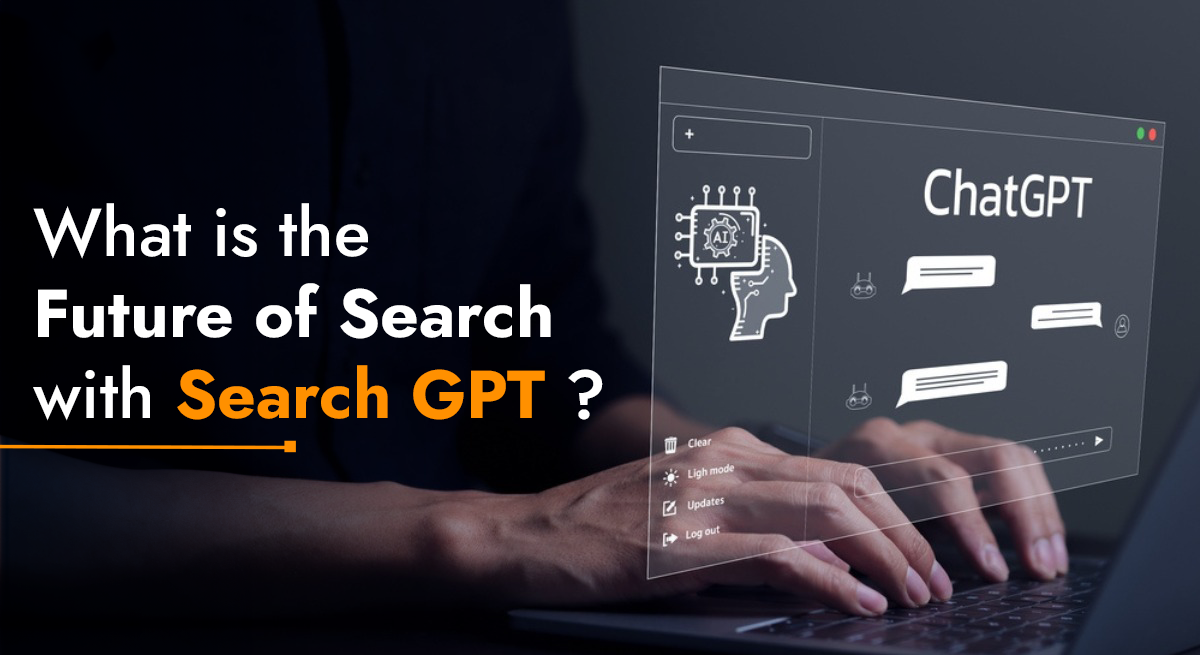

The future of search is changing fast, and one of the most exciting developments is Search GPT, integrated directly into ChatGPT. This new entry seems to promise the transformation of the way we use search engine. Unlike traditional way, you do not need to leave ChatGPT.
You can ask questions, get results, and interact—all in one place. Interesting Isn’t it?
Faster Results, Fewer Distractions
One of the biggest advantages of Search GPT is its speed. The information you need is delivered right to you, quickly and directly. No more clicking through multiple pages or scrolling endlessly to find relevant answers. It's all about efficiency. Search GPT is designed to provide you with meaningful and concise information, not just a flood of irrelevant results.
Plus, there's a major bonus—no ads. Traditional search engines like Google are filled with advertisements that can clutter the page and distract you from what you’re actually looking for. With Search GPT, you get just the information you need, without the interruptions. It's a cleaner, more streamlined search experience.
Precision, Not Overload
Search GPT does more than just give you random bits of information. It focuses on providing answers that matter, rather than bombarding you with an overload of facts or irrelevant details. This makes it especially useful for people who need to find specific, high-quality information without the usual noise that comes with standard search engines.
However, like any technology, Search GPT is not without its drawbacks.
The Strengths of Google Over Search GPT
Even though Search GPT offers some great features, Google still has its advantages. Accuracy is a big one. Search engines like Google have a vast network of verified sources, ensuring that the information provided is as accurate as possible. ChatGPT, on the other hand, can sometimes give information that’s not entirely true, and even warns users about this potential issue. So, it’s best to cross check the information.
Another area where Google still leads is the inclusion of multimedia. Google search results often include videos, maps, and other helpful features like reviews, images, and interactive content. At this moment, Search GPT doesn’t offer these multimedia elements. If you’re looking for how-to videos, location maps, or even real-time traffic updates, Google is still your go-to option.
Search GPT has its flaws, just like any emerging technology. For example, it may not understand certain queries the way you expect or may not retrieve the most relevant results every time.
Search GPT is still a thing in progress, which will keep on evolving overtime.
The AI Race: No One Wants to Be Left Behind
The race for being the top Search engine is on. While Google is still the most used one, we can expect the new player Search GPT to overtake it and crown itself as the new search engine emperor. This fierce competition is compelling to be witnessed and it’s exciting to live in the era where we can experience a transformation first hand. The best thing about a competition is that it makes the participants to give their best out. This in turn ultimately benefits the consumer or users. As they say customer is the king, and the ultimate decision lies with the public, whom will they embrace and whom would they abandon lies in the womb of the future.
to dig deeper in to this you can Visit:- https://www.sociomark.in/blog/how-ai-and-machine-learning-are-transforming-seo
Conclusion
While Search GPT is an exciting step forward, we can expect more enhancements to both AI search and traditional search engines in the coming years. It’s clear that the future of search will be shaped by who can balance speed, accuracy, and the user experience.
So, where is all of this going? One thing’s for sure: in the AI race, it’s not about which tool is best today—it’s about who can keep up tomorrow.
Author - Rishi Vishwakarma (SEO Executive)


